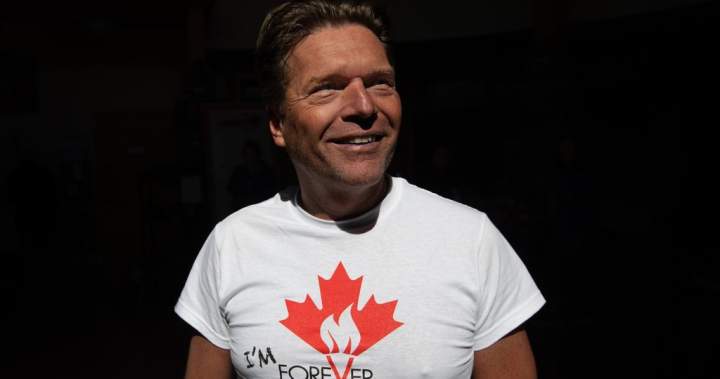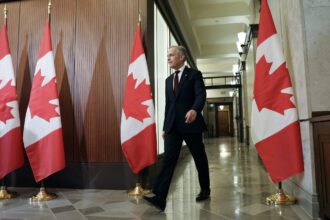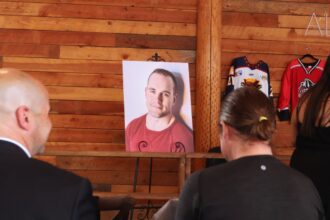In a bold counter-movement to Alberta’s surging sovereignty rhetoric, former Deputy Premier Thomas Lukaszuk has launched a petition that’s rapidly gaining momentum across the province. The “Proud to Be Canadian” initiative has already gathered over 5,200 signatures since its launch last week, revealing a significant undercurrent of pro-federation sentiment that stands in contrast to Premier Danielle Smith’s increasingly assertive stance on provincial autonomy.
“What started as a small voice has become a chorus,” Lukaszuk told me during our exclusive interview at his Edmonton office. “Ordinary Albertans approached me with concerns about the sovereignty narrative dominating our provincial discourse. They asked: where is the voice for those of us who are proud Canadians first?”
The petition emerges at a critical juncture in Alberta-Ottawa relations. Premier Smith’s government recently passed the controversial Alberta Sovereignty Within a United Canada Act, legislation that critics argue creates a constitutional framework for potentially rejecting federal laws. Additionally, Smith’s frequent use of sovereignty rhetoric and challenges to federal jurisdiction have intensified the national unity debate within the province.
Lukaszuk, who served as a Progressive Conservative MLA from 2001 to 2015, insists this isn’t a partisan initiative. “This petition transcends political affiliations. We have signatures from conservatives, liberals, and everyone in between. The common thread is a belief that Alberta’s future is brightest within a strong Canadian federation.”
Political analysts note that the petition’s rapid growth suggests Premier Smith’s sovereignty agenda may not resonate as widely as previously assumed. Dr. Janet Riverton, political scientist at the University of Calgary, points to significant data supporting this assessment.
“Our recent polling shows approximately 62% of Albertans feel concerned about rhetoric that could weaken national unity,” Riverton explained. “While there’s genuine frustration with certain federal policies, most Albertans don’t see separation or constitutional confrontation as the answer.”
The petition specifically calls for Alberta’s government to “focus on constructive dialogue with Ottawa rather than constitutional brinkmanship” and to “reaffirm Alberta’s commitment to Canadian confederation while advocating for provincial interests.”
Premier Smith’s office responded to inquiries about the petition with a statement emphasizing that “standing up for Alberta’s constitutional rights strengthens rather than weakens confederation.” The statement further argued that “true federalism requires provinces to vigilantly protect their jurisdiction.”
However, Lukaszuk remains unconvinced by this rationale. “There’s a profound difference between advocating for Alberta’s interests and creating a framework for constitutional confrontation,” he said. “One strengthens our negotiating position; the other potentially weakens the foundations of our federation.”
Economic considerations also feature prominently in the petition’s rationale. Alberta business leaders have increasingly voiced concerns about how sovereignty rhetoric might affect investor confidence and economic stability. The province’s economy, heavily integrated with national supply chains and dependent on cross-border trade, could face significant disruption if federal-provincial relations deteriorate further.
Sarah Henderson, CEO of the Alberta Economic Council, notes that “regulatory uncertainty is the enemy of investment. When businesses perceive constitutional instability, they become hesitant to commit capital.”
The petition organizers plan to present their signatures to the provincial legislature once they reach 10,000, a milestone they expect to achieve within weeks based on current growth trends. They’re also organizing community discussions across the province to facilitate dialogue about Alberta’s place in confederation.
As this grassroots movement gains traction, it raises a fundamental question that resonates far beyond Alberta’s borders: in an era of increasingly polarized federalism, can Canadians find a balanced approach that respects provincial autonomy while preserving the essential bonds of confederation?
For more on provincial politics and national unity debates, visit CO24 Politics and Canada News.










